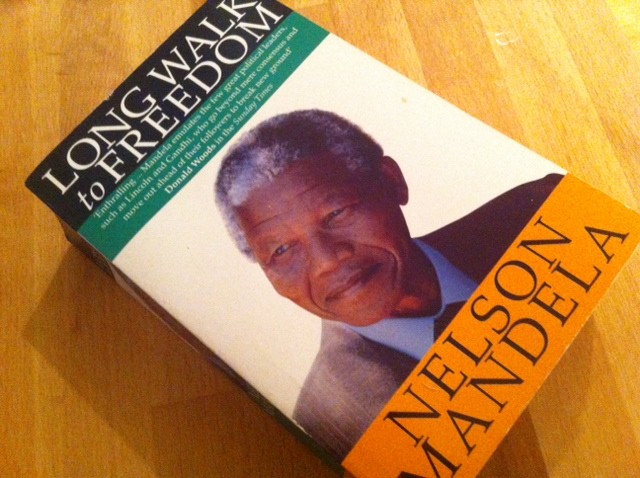In Nelson Mandela’s celebrated 1994 autobiography, Long Walk to Freedom, the late South African leader and Nobel laureate was careful to distance himself from communism. However, in the original manuscript–quietly published online in 2011 and 2012, and only recently noticed–Mandela openly sympathizes with communism and the Soviet Union, and calls the “US brand” of “imperialism” the “most loathsome and contemptible.”
Mandela’s original text, smuggled out of prison by fellow inmate Mac Mararaj (now the official spokesperson for South Africa’s fourth democratic president, Jacob Zuma), was written in the 1970s amidst a period of decline in American power, scholar James Myburgh notes on his South African political news website, Politicsweb.co.za.
“Western power meanwhile appeared very much on the wane, following America’s defeat in Vietnam. That was the milieu then in which the prison manuscript was written. The final autobiography was commissioned and completed, however, following the collapse of Communism, and the disintegration of the Soviet Union. Revelations of Mandela’s past [communist] sympathies had the potential to cause acute embarrassment, as well damage the myth built up around him by the ANC’s Western supporters,” Myburgh explains.
The most embarrassing passages were scrubbed for the final version of Mandela’s book. Thus passages siding with Cuba during the missile crisis of 1962 and celebrating the Bolshevik revolution of 1917 as “an immortal achievement which opened up vast possibilities for man’s forward movement,” were omitted. So, too, were the worst attacks on the U.S., “given that then United States President Bill Clinton wrote the Preface,” Myburg adds.
Historian Stephen Ellis, who first drew attention to the full, original version of Mandela’s manuscript, earlier revealed that Mandela was, in fact, a member of South African Communist Party, despite his fervent denials. In Long Walk to Freedom, as well as at his trial for his role in the armed struggle against the apartheid regime, Mandela was at pains to distance himself from communism, even if he expressed some sympathy for it.
It remains true that once he emerged from prison, Mandela steered his political party, the African National Congress (ANC), away from its original demands for state ownership of industry and towards an embrace of free markets and balanced budgets. That decision, which was probably crucial to the country’s negotiated political transition remains controversial today, as breakaway parties begin to challenge the ANC from the left.

COMMENTS
Please let us know if you're having issues with commenting.